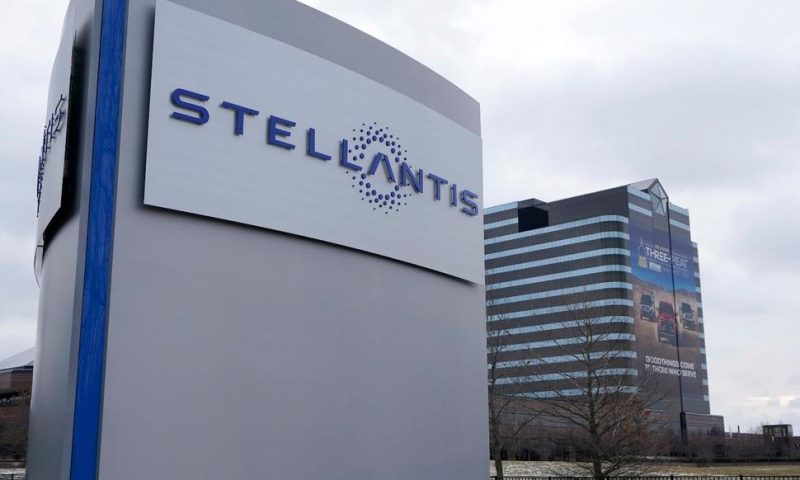Automaker Stellantis says it achieved faster-than-expected progress on synergies and record margins in its first six months as a combined company, despite suffering 700,000 units in lower production due to interruptions in the semiconductor supply chain.
MILAN — Stellantis said operations are meshing faster than expected since the company’s creation with France’s Peugeot PSA;s takeover of the Italian-American car maker Fiat Chrysler, yet snarled global supply chains clipped production by 700,000 vehicles.
In the first half of the year, Stellantis booked profits of 5.9 billion euros ($7 billion), compared with a loss 813 million euros the same period last year when COVID-19 shut down vast swaths of the manufacturing sector.
Shipments rose 44% to 3.2 million units. Revenues rose 46% to 75 billion euros.
“We are very pleased with the speed with which the new team has begun to execute as one company, as Stellantis,’’ Chief Financial Officer Richard Palmer told reporters.
Semiconductor shortages accounted for 200,000 units of production losses in the first quarter and 500,000 in the second quarter as supply chains again kicked into action as infections slowed in Europe and the U.S. Semiconductors are used more than ever before in new vehicles with electronic features such as Bluetooth connectivity and driver assist, navigation and hybrid electric systems.
Stellantis achieved 1.3 billion euros in cost savings in the first half, mostly by sharing investments in new technologies and platforms, which Palmer said was a faster rate than initially forecast. It aims to achieve 80% of the targeted 5 billion in cost savings by 2024.
“These synergies allow us to continue to invest in the electrification strategy, which we talk about every day,” Palmer said.
Stellantis, which lags competitors in rolling out electric vehicles, plans to launch 21 fully electric or plug-in gas electric hybrid vehicles over the next two years.
“We are now racing, we are now executing our plans,” CEO Carlos Tavares told analysts. He said that there would be 22 pure electric vehicles on sale in two years, including 11 already on the market.
North American posted record profitability on global sales of Ram trucks and the strong launch of the Jeep Wrangler 4xe, which was the best-selling plug-in gas electric vehicle in the United States in the second quarter. Stellantis was the market leader in South America and second in Europe.
Stellantis also raised its forecast for operating profit margins to around 10% for the year, after achieving 11.4% in the first half, a record against performance of both previous standalone companies.
Tavares said the industry is facing negative risks in the second half, in the form of uncertain semiconductor supply, rising raw material prices and the threat of future lockdowns due to coronavirus variants.
“The only thing I can do is put as many tailwinds as I can in motion to be sure that we overcome the headwinds,” Tavares said
Visibility on semiconductor supply “is still quite poor,” Tavares said, but the hope is that it will be better than the first half. Within Stellantis, semiconductors could be distributed among its operating regions in order to “protect the best parts of our business, if need be,” the CEO said.
One lesson of the pandemic has been an increased value on individual mobility, Tavares said.
The financial results were presented on a pro-forma basis, taking into account the performance of each of the carmakers as separate entities during 2020.

